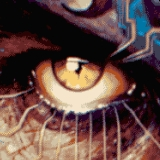
There’s some Streisand effect stuff going on here. Other reactors are releasing waste which is more radioactive than this every day. Going to extraordinary lengths to reduce public concerns about this one just makes it seem shady.
If he pretends to choke while eating it on live television, he gets bonus points.
Lots of Asian fish dishes are served with bones in them. What if he doesn’t know how to eat around them and chokes?
He’s the ambassador to Japan, I’m pretty sure he’s had Asian food before.
I’m sure too, it’d just be a funny situation
What if he really does choke or what if the bite is wildly small or what if he dies mysteriously in the coming weeks?
If this man isn’t a standing picture of health, it will have a negative effect.
Sure, you can also eat swordfish once and not get mercury poisoning. Doesn’t mean I’d recommend you to make it a part of your daily diet.
This is the best summary I could come up with:
Japan began releasing more than 1 million metric tons of radioactive water from a wrecked nuclear power plant on Thursday, prompting widespread concerns over contamination and safety.
The decision to release the wastewater has been a controversial one, sparking protests in Japan and further afield in South Korean capital Seoul from antinuclear activists and those concerned about contamination.
The UN has backed Japan’s assessment of the situation, with the organization’s nuclear regulator saying it is safe to release the water, and that doing so will have a negligible impact on environmental health.
Protesters gathered in Japan and South Korea this week to push back against the release of the radioactive water, with much of the concern centering around possible contamination, particularly of seafood.
In July, a public survey found that 62% of South Koreans would cut back or stop eating seafood after the water was discharged, according to news agency Reuters—despite Seoul pledging to closely monitor the release.
In recent weeks, some consumers in China—Japan’s biggest export market for seafood—also questioned whether it would be safe to eat the country’s seafood products after the water was released into the ocean.
The original article contains 590 words, the summary contains 190 words. Saved 68%. I’m a bot and I’m open source!
His campaign was over before that piece of fish even hit the ground.
As an armchair scientist and a Chicagoan, I support this stunt. :)
But seriously, as I observed elsewhere, 0.1 µSv/banana is way higher than 3.9 µSv/yr.
🤨
deleted by creator
deleted by creator
Tell me you don’t understand radioactivity without telling me you don’t understand radioactivity.
deleted by creator
If you did you wouldn’t have made such an ignorant comment.
Without knowing the numbers, it’s impossible for me to make a judgment call on the release, but it’s important to remember that literally everything around you is radioactive. Just because the water has measurable amounts of radioactive material in it does not mean it’s unsafe. Ocean water is 3 parts per billion uranium, and yet people happily eat ocean fish.
Again, without knowing the numbers I can’t say for sure, but depending on what’s in the water (and how much there is) it very well could be entirely fine to dump it.
In any case, yeah I totally agree. It’s a publicity stunt.
That water is pretty radioactive at about 1500 Becquerel per liter. It will definitely increase the radioactivity of any seafood caught in the area for a long time. How bad it’ll be is not really possible to estimate right now so this is yet another gamble with public safety.
Most of the sources I’ve seen say less than 200 becquerels per litre, where the accepted drinking water limit is 10,000. This article for example says 190 Becquerels.
To say it’s not possible to estimate is untrue. An international agency determined it would be within accepted safe limits. Still, one can never know and less is certainly better when it comes to radiation.
Yeah sure let’s just make up numbers. Goofy.







